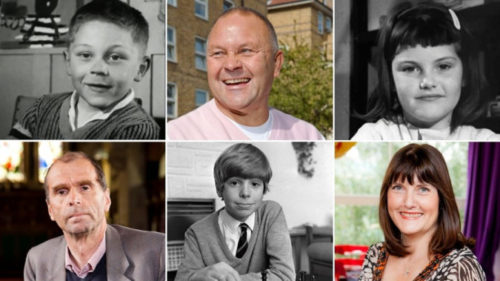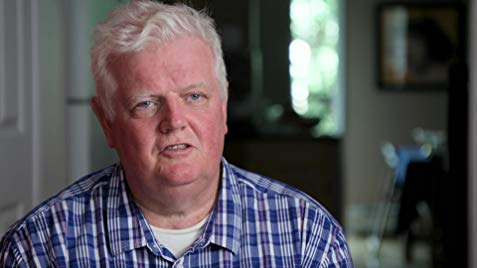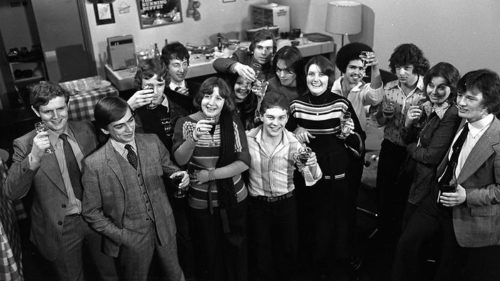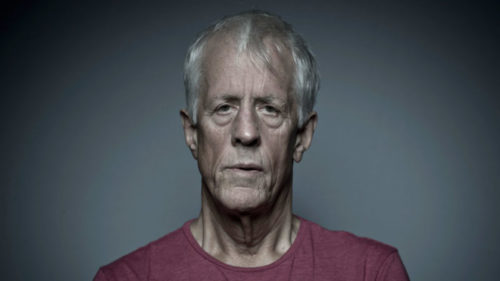Michael Apted’s Up series feels simultaneously like the most boring and the most fascinating documentary ever made. Following a group of fourteen English kids from age seven to, so far, 63, catching up with them every seven years, the documentary mirrors life itself. Which is it strength and its weakness. It is, in its way, gripping to watch this group of humans age, and likewise, often, quite dull. So, yes. Much like the experience of living one’s own life. Well, unless you’re one of those amazingly exciting people I’ve seen on the TV. Like Mr. Roarke, from Fantasy Island? Man, that guy had it made. For example. Where was I?
42 Up is the best of the series, because it’s in the seven years between 35 and 42 that everyone found themselves, more or less. If not including the most change for most of the participants, it featured the most significant changes. It feels like a culmination of what came before rather than merely a continuation. Since then, the lives of these representative humans have continued, some in ways more intriguing than others, but none have, since 42 Up, upended their lives or become anyone other than who they already were. Maybe who they always were, if you accept the proposition stated at the outset of Seven Up!, “Give me a child until he is seven and I will give you the man.”
Apted makes a point in 63 Up of asking the participants what they think of that proposition, that they were who they are by age seven. Most agree it’s true. I think most viewers would likewise agree. It may be difficult to see in ourselves, but up on screen, scenes of a lifetime whipping by in a brief montage, it’s plain that much of who we are in terms of character, affect, and disposition are set by age seven. After that, it’s all filling in the details.

I had a hard time watching 63 Up and not thinking that these people, and, thus, the rest of us, too, don’t ever turn into adults. That there’s no such thing as an adult outside of this world of children pretending that’s who we are. We layer on complication after complication, but who are we really, deep down inside? We are the children we always were.
Or so it feels, watching 63 Up. It may also feel this way watching the people on the bus, ranting and raving. Or in our houses, leaving their socks on the sofa (I’m looking at you, Milo). Or in elected office, politicking our world away. In 63 Up, Apted asks a number of the participants what they think about Brexit. None appear keen on it.
Only one of these adult kids has died since 56 Up (and only one refused to be interviewed). Though one other we meet suffering from a cancer the prognosis for which is not revealed. He’s the most emotionally intense interviewee this time around, so obviously shaken and scared at what must be a relatively recent diagnosis.

But, all in all, none of the interviews are especially fascinating. Most reveal people who years ago found their place in life and have since thrived. None appear to be in dire staits. Most have children if not grandchildren. There’s a contentedness and an ease with whom they’ve become (themselves, at age seven, more or less).
On the other hand, their contentedness at having found their place in life is fascinating. This is life. It’s impossible to watch any of the Up series without imagining what one would be saying of oneself at the ages in question, were we in such a film. How would we come off? Are we interesting? Boring? irritating? Profound? Would our lives seen in seven year snapshots reveal characters changing dramatically or cruising from beginning to end in a comfortable rut? Whatever drama we experience day to day, gathered into one seven-year info dump, would our lives make for a good documentary?
And the answer, as provided by the Up series, is yes, abundantly yes. Any life is as gripping as any other. Sure, it might have been nice if one of these kids had, mid-life, taken over a small country, stolen billions of dollars in aid money, and lived an outrageous life of luxury, genocide, and the abandonment of everything that once made them human before being hung by revolutionaries in a war raging to this day.

But the Up series isn’t about outliers. It’s about the rest of us. In that, it is a unique and wonderful document I’m sad to see end. If ended it has. Apted is currently 78. If he’s not around to continue the series in seven years, will anyone take his place? Will anyone participate without Apted, their mysterious, seen-only-once-every-seven-year father-figure? I hope so. Of course all we’d really have to look forward to is the potential for aging gracefully, and, surely, more deaths between installments. But that’s life, if you live long enough: everyone you know slowly but surely vanishing, until you go yourself.
Well. Sorry to get depressing about it. 63 Up is, by and large, not depressing. It’s a picture of people relatively happy with where life has taken them, no matter what economic and social class they started out in. Which maybe that’s the real takeaway here. Not whether or not a class system still exists—of course it does—but that humans, whatever hand they’re dealt, have a way of making the best of it, and, having done so, of being unable to imagine having lived life any other way.

